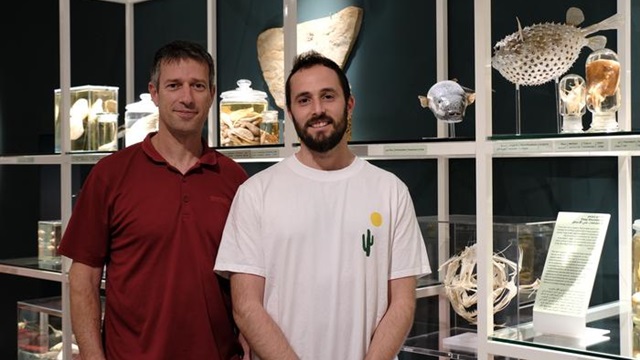Israeli researchers have found yet another disastrous consequence related to climate change: fish species that move rapidly toward the poles in order to escape rising sea temperatures caused by global warming are disappearing. The worst news is there is no way known to reverse the damage.
An international study led by researchers from Tel Aviv University found a decline in the abundance of such marine fish species. The researchers explain that many animal species are currently moving toward cooler regions as a result of global warming, but the velocity of such range shifts varies greatly for different species. Examining thousands of populations from almost 150 fish species, the researchers show that contrary to the prevailing view, rapid range shifts coincide with widescale population declines. According to the study, on average, a poleward shift of 17km per year may result in a decline of 50% in the abundance of populations.
For the first time, the new study correlated two global databases: (1) a database that tracks fish population size over time, and (2) a database that compiles range shift velocities among marine fishes. Altogether, 2,572 fish populations belonging to 146 species were studied, mostly from the Atlantic and Pacific Oceans in the Northern Hemisphere.
Will you offer us a hand? Every gift, regardless of size, fuels our future.
Your critical contribution enables us to maintain our independence from shareholders or wealthy owners, allowing us to keep up reporting without bias. It means we can continue to make Jewish Business News available to everyone.
You can support us for as little as $1 via PayPal at office@jewishbusinessnews.com.
Thank you.
The international study was led by PhD student Shahar Chaikin and Prof. Jonathan Belmaker from the School of Zoology in the Wise Faculty of Life Sciences and the Steinhardt Museum of Natural History at Tel Aviv University. The paper was published in the leading scientific journal Nature Ecology & Evolution.
“We know that climate change causes animal species to move – northward, southward, upwards, or downwards – according to their location relative to cooler regions,” Prof. Belmaker said.
In the mountains fish climb upwards, in the oceans they dive deeper, in the Southern Hemisphere they move south toward Antarctica, and in the Northern Hemisphere they move north toward the North Pole,” the researchers found.
“In the present study we wanted to see what happens to species that move from one place to another,” added Prof. Belmaker. “Do they benefit by increased survivability, or are they in fact harmed by the shift – which was initially caused by greater vulnerability to climate change? We found that the faster fish shift toward the poles, the faster their abundance declines. Apparently, it is difficult for these populations to adapt to their new surroundings.”
PhD student Chaikin: “We found that species shifting their geographical range more rapidly towards the poles, are in fact more likely to lose their abundance (e.g. European seabass). Additional findings show differences between populations that are closer to or further from the poles – within the geographical range of a particular species. While it might have been assumed that populations closer to the cooler polar margins of the species range would be less affected by climate change, we found that the opposite is true: fast poleward range shifts of populations from higher latitudes resulted in a more rapid decline in abundance compared to equatorial populations of the same species.”
The researchers highlight that the new findings can and should guide environmental decisionmakers, by enabling a reevaluation of the conservation status of various species and populations. The study’s results suggest that populations exhibiting rapid poleward range shifts require close monitoring and careful management. Thus, for example, pressures that threaten their survival can be mitigated through measures like fishing limits.
The study found that previous ideas about fish populations were wrong. It was once believed that rapid range shifts safeguard a species against local population decline. However, the researchers now say the different species rapidly shift their range in search of cooler temperatures do so because they are more vulnerable to climate change, and consequently require special attention.




